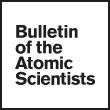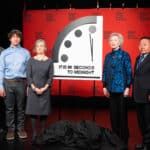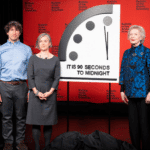The nuclear weapons ban and the NPT
By Ray Acheson | June 15, 2017
Since 1970, the Nuclear Non-Proliferation Treaty (NPT) has been the sole international agreement committing nuclear-armed states to disarmament. Every five years, the 189 states party meet in a review conference to assess how things are going. Before each review conference, they hold several preparatory meetings, the most recent of which took place in Vienna in May.
That timing is significant, because it was the first NPT gathering to occur since most of the world’s nations—some of them fed up with the slow pace of disarmament—began trying to negotiate the world’s first-ever treaty to ban nuclear weapons altogether. Ban negotiations began in March and resumed on June 15. The timing of the May preparatory meeting should have pressured the nuclear-armed states and their supporters to get more serious about advancing disarmament. Instead, these states continued to criticize efforts to ban nuclear weapons, while offering no new commitments or visions for making progress in other ways.
The May Preparatory Committee meeting (or “PrepCom”) clearly showed that NPT members who want faster, more concrete action on disarmament face challenges. With the nuclear-armed states modernizing their arsenals, and little traction on any of the previously agreed commitments and obligations related to disarmament, it’s unclear how the treaty’s membership can advance on key issues by 2020, the date of the next review conference.
PrepComs don’t produce binding documents, but participants do hope the chairperson summaries will reflect their goals. These summaries can provide useful guideposts when it comes time to negotiate the outcome documents of the review conferences themselves, which are politically binding and require implementation. This time, the summary produced by the chairman, Ambassador Henk Cor van der Kwast of the Netherlands, drew praise but also criticism. In particular, most supporters of the ban treaty were disappointed. The New Agenda Coalition (a group of six pro-ban countries) expressed concern that the ban treaty only earned two sentences in the 49th paragraph. Given that 132 states are participating in ban negotiations, and the broad support it received during the PrepCom deliberations, this reference struck many as insufficient.
Committee conflict. The vast majority of states party to the NPT support the nuclear weapons ban. In fact, during PrepCom discussions, they emphasized the ban treaty’s complementarity to the NPT. The ban negotiations and the NPT share goals, such as enhancing security and preventing a humanitarian and environmental catastrophe. The International Committee of the Red Cross, which supports the NPT, also urged all states to participate in the ban negotiations.
At the same time, though, nuclear-armed states participating in the May PrepCom, as well as allies who see their security as dependent on a nuclear “umbrella,” used the meeting to reiterate their opposition to the ban treaty. Russia expressed concern about what it called a “radicalization of approaches to nuclear disarmament,” while the British delegation argued that the ban being negotiated will not “bring us closer to the goal of a world without nuclear weapons.” France said that “the prohibition approach could divide the disarmament community” and generate more frustration than progress. The United States said a ban treaty may make the world more dangerous and unstable and act as a “distraction” from the NPT review process. China was slightly more tempered, saying that its position on nuclear disarmament is in line with the purposes of the prohibition treaty, but that it prefers a “gradual approach.” (So far, China has not participated in ban negotiations.)
The very fact, though, that so many pro-ban countries were present for PrepCom and spoke in support of the NPT suggests that the nuclear-armed nations simply have it wrong. The ban treaty negotiations have clearly not destroyed the NPT or its review process. Given that this was the predominant concern of the nuclear-armed states and their supporters in the lead-up to the May meeting, it seems fair to assume that their other predictions and anxieties about the prohibition treaty may be equally unfounded.
New methods, old goals. The problem is not really, of course, that the ban treaty risks undermining the NPT. It does risk undermining the rationale the nuclear-armed states have relied on to maintain and expand their arsenals despite treaty commitments. The cornerstone fallacy of the NPT is that, as the Russian delegation asserted during the PrepCom (link in Russian), the presence of nuclear arsenals in five countries is completely legitimate.
This myth of legitimacy is undermined by the five “official” nuclear-armed states’ strong objections to North Korea’s nuclear program, and even more by their own failure to implement their legal obligations and political commitments. If the nuclear arsenal reductions they committed to decades ago had been fulfilled in good faith, “we would be moving, even incrementally, towards the complete elimination of nuclear weapons,” as the Brazilian PrepCom delegation pointed out. Instead, while claiming to espouse a “building blocks” or “progressive” approach to disarmament, the nuclear-armed states have failed to take concrete action, and in fact marched in the opposite direction by upgrading and modernizing their arsenals. It is actions like these—not the proposed ban treaty—that have undermined the NPT.
The pattern of making commitments and failing to implement them could only persist for so long before other countries started moving forward on their own. Those now negotiating a ban are carrying on with the task of developing a legal framework to achieve a world free of nuclear weapons. These states participated actively in the NPT PrepCom in an effort to find common ground with those that have chosen to boycott the negotiations. They also rightly see the development of the ban treaty as a way to fulfill the NPT, Article VI of which obliges them to negotiate effective measures for nuclear disarmament in good faith.
This post is part of Ban Brief, a series of updates on the historic 2017 negotiations to create a treaty banning nuclear weapons. Ban Brief is written by Tim Wright, Asia-Pacific director of the International Campaign to Abolish Nuclear Weapons, and Ray Acheson, director of Reaching Critical Will.
Together, we make the world safer.
The Bulletin elevates expert voices above the noise. But as an independent nonprofit organization, our operations depend on the support of readers like you. Help us continue to deliver quality journalism that holds leaders accountable. Your support of our work at any level is important. In return, we promise our coverage will be understandable, influential, vigilant, solution-oriented, and fair-minded. Together we can make a difference.
Topics: Announcement














